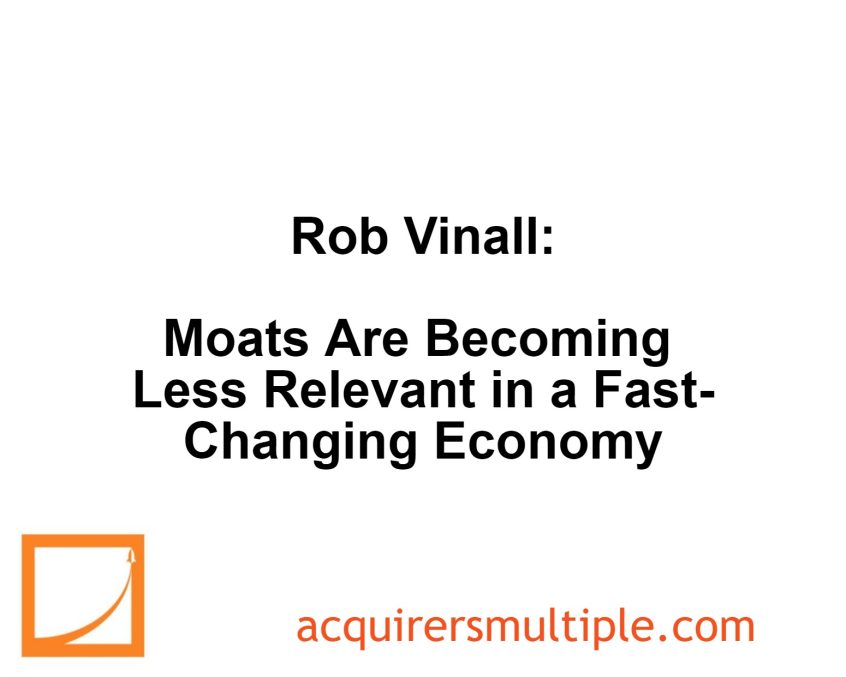During his recent presentation at the Value Investor Conference, Rob Vinall discusses the concept of economic moats in both static and dynamic economies. Historically, a wide moat was advantageous, ensuring stability and wealth, as seen with landowners 300 years ago.
However, in today’s fast-changing economy, a wide moat can be a disadvantage, leading to complacency and hindering quick adaptation to competitive threats. Vinall cites Google as an example of a company that may suffer from its wide moat, becoming overbloated and facing challenges in the AI transition.
Effective execution and adaptability are crucial for modern companies to thrive in a constantly evolving market.
Here’s an excerpt from the presentation:
If you imagine a world where things basically never change, then yes clearly a moat is very very important, and probably the only thing that counts.
So imagine 300 years ago where basically everyone sort of lived and worked on the land and you had sort of this tiny fraction of people who owned all of the land, had big beautiful manor houses, and then you had the sort of the peasants who worked the land.
For just enough to probably survive and feed their families. Clearly you wanted to be the land owner in that situation.
But I would contrast that with a much more modern dynamic situation where things are sort of permanently changing, and I would ask if you have a wide moat, whether it’s switching cost or a brand, or whatever, is that an advantage, or is it perhaps even a disadvantage?
And I would argue in a fast changing economy it’s probably a disadvantage to have a moat because it’s going to make you fat and lazy. And it’s going to slow you down when it comes to reacting to competitive threats.
So in a more of a dynamic economy you really want companies which have great execution and you should be actually actively fearful if the moat is too wide because that’s probably going to slow them down.
And the company that really springs to mind today a little bit is maybe Google as well because they obviously… it’s become this enormous very over bloated complacent organization facing an existential threat, perhaps also opportunity in the AI transition.
And if AI turns out to be a sustaining innovation for Google then they’ll do fine, they’re integrated into their search engine everything will be fantastic but, if it means reimagining the business from scratch. Outcompeting all these startups entering the space then frankly I’m pessimistic for Google.
You can watch the entire presentation here:
For all the latest news and podcasts, join our free newsletter here.
Don’t forget to check out our FREE Large Cap 1000 – Stock Screener, here at The Acquirer’s Multiple:



